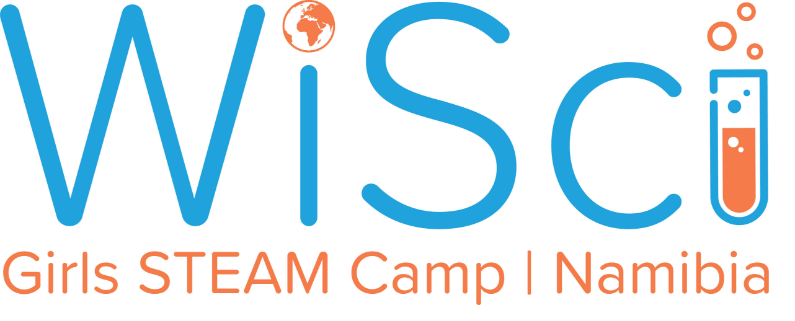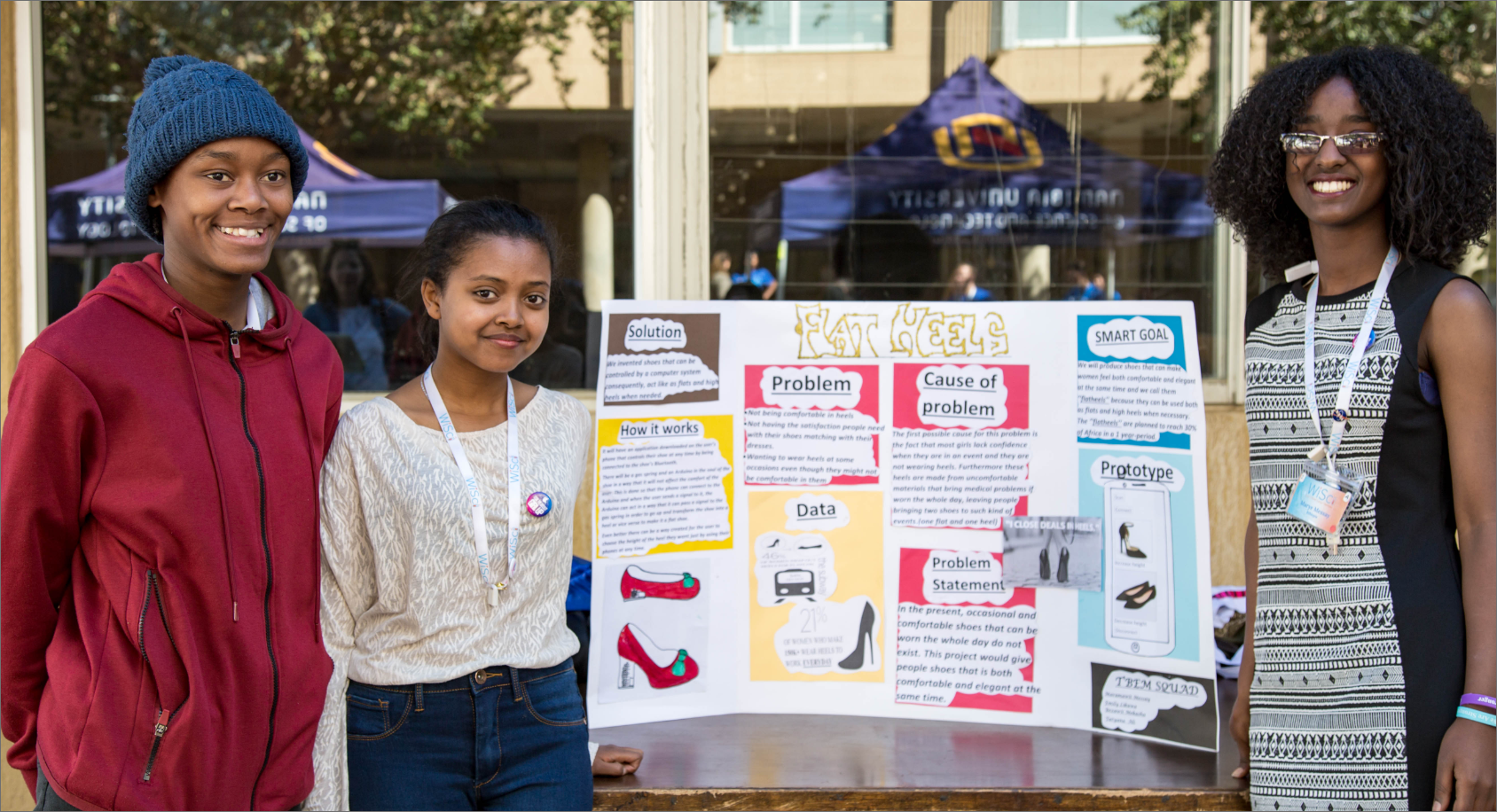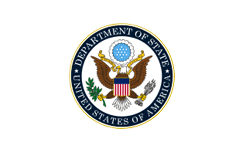“I learned a lot, especially from Thomas,” said U.S. camper Jennifer Giron. “I always want everything to be perfect but he had us think outside of the box. I think that’s really important because sometimes our ideas don’t flow when we think there is a certain way that it has to be.”
These workshops resulted in a lot of creative and useful projects, including one team that set out to provide service dogs to people who can’t see — and do so at a low cost. As U.S. camper Leslie Marroquin explained, years ago she and her brother were in a car accident that left him blind. Her mother wasn’t able to afford a guide dog, as they can cost more than $15,000. So her team created a robotic service dog made of cheap materials such as plywood and silicone. “We invented what I personally wish had been invented,” Marroquin said.
On the last day of WiSci, campers presented their projects to a panel of judges from Intel, Girl Up, the U.S. Department of State, and the Namibia University of Science and Technology. The panel then awarded four prizes, which were made possible with the support of Cheryl Lewy, vice chair of World Learning’s Board of Trustees, and her husband Glen.
The Flat Heels project won the Most Innovative prize. Bezawit Kassaye, a camper from Ethiopia who was part of the team, explained how the shoes would come outfitted with a gas spring in the heel that would be operated by a tiny Arduino computer connected to a user’s cell phone app. The team hoped their product could help make life just a little bit easier for women around the world.
“These projects proved to me that no matter which part of the world you are from, no matter what culture, no matter what color or race or anything that makes us different, we all are facing challenges every day,” Kassaye said. “And the only way we could actually solve these challenges is by working together to find solutions for them.”








